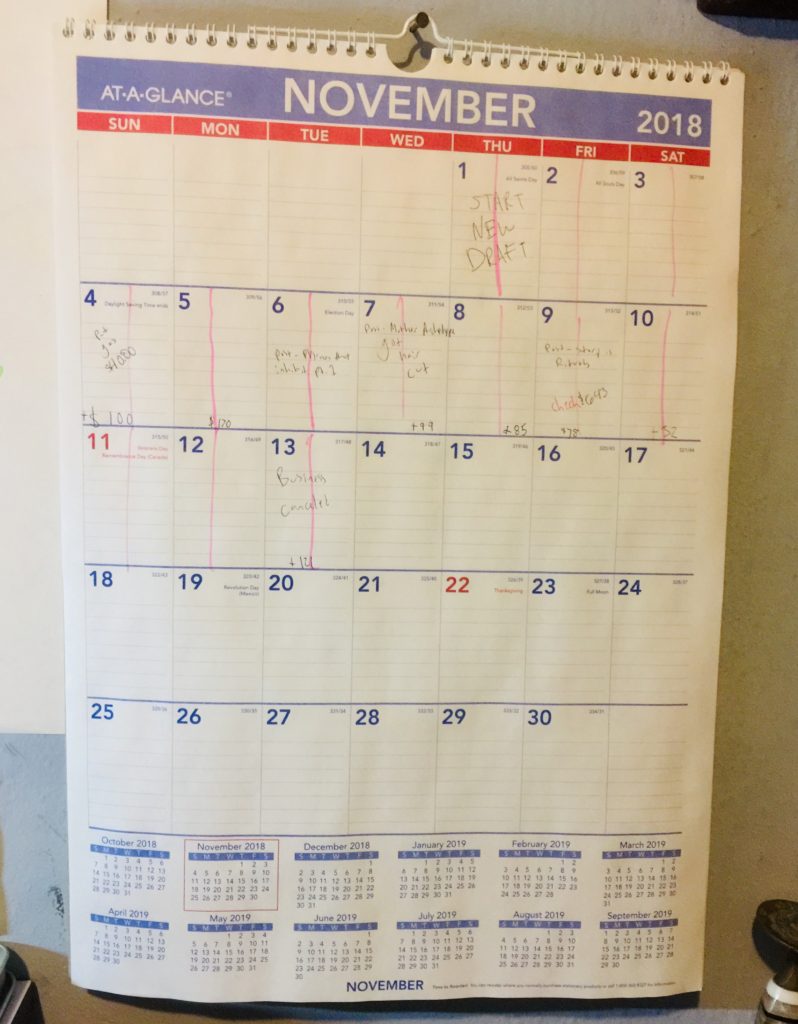
Austin Kleon says, “Here is where your diary comes in hand. You keep track of what’s happening, write your own history book, consult it when you feel like you’re going crazy.”
He says sailors use this method of a logbook to see how far they have traveled at sea. If they don’t see progress they go mad.
It is very easy to get lost in pointless activity so I use two methods to not go crazy. I have a horizontal calendar and a notebook where I write my goals down.
The importance of my calendar is marking down things that I have completed. This can be books and audiobooks I have read, posts I created, or things like washing the car or what date I cut my hair. It’s a good feeling to see all the things you did when the month is finished. It can also be a jolt to your laziness when you see a blank calendar. You get motivated to start filling it up with things.
The second method I use to fight unproductivity is write in my notebook. I write my goals down; go to work, call the insurance, or make a post, but the real power of a notebook comes in reviewing what you did and didn’t do each night.

Austin Kleon says that our notebooks are the best place to experiment because no one will ever see us fail. The power is in the lessons we give ourselves when we go through a check of our day. These lessons help us move forward when we are stuck. Some lessons I give myself for the next day after I checked how productive I was and even how happy I felt are; smile more, no watching Youtube in the morning, leave your room to write, and meditate from 10 to 15 minutes.
The notebook helps me move when the anchor is down and I’m stuck.
If I know I am moving (the daily tips on where I can improve) and have a map of the landmarks I have passed (calendar) then I must be getting closer to something.